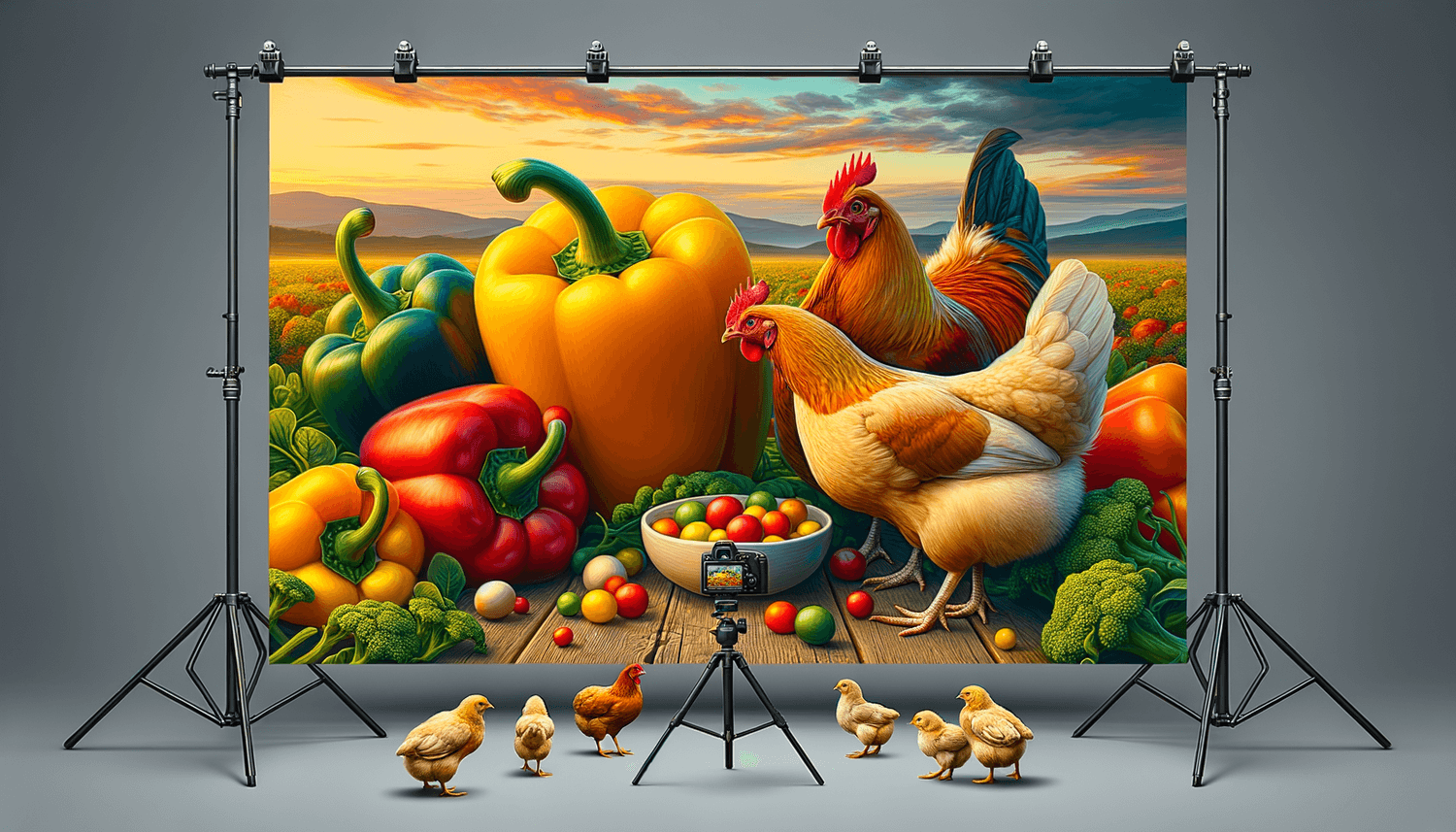Cluck cluck, chicken lovers! Today we’re discussing the spicy question: Can chickens eat bell peppers? Picture this – you’re in your garden, surrounded by glorious bell peppers, and you wonder if your beloved backyard flock can enjoy these colorful treats too. Well, you’ve come to the right place to find the answers! We’ll be pecking into whether or not chickens can chow down on bell peppers, how this tasty veggie can be part of a well-balanced diet, the various benefits and/or risks, its nutritional value, and of course, the best way to serve up this vibrant veggie for our feathered friends. So, fluff up your feathers and let’s get cracking on this mouth-watering topic!
Can chickens eat bell pepper?
Yes, chickens can safely eat bell peppers! Bell peppers are not only non-toxic to chickens, but they also provide a variety of essential nutrients and antioxidants that help keep your backyard flock healthy. Just remember that moderation is key, as bell peppers should be considered as occasional treats rather than a staple in your chickens’ diet.
A balanced diet for chickens
Just like humans, chickens need a well-balanced diet to lead a healthy and productive life. A chicken’s diet should primarily consist of high-quality chicken feed, which should make up around 80-90% of their diet. Chicken feed is nutritionally formulated to provide all the necessary vitamins, minerals, and protein to support their growth and egg production. Ensuring that chicken feed is the main component of your flock’s diet is essential for their overall health and well-being.
The remaining 10-20% of their diet can consist of treats like fruits and vegetables. Variety is the spice of life, and the same rule applies to our feathered friends! Offering a selection of fruits and vegetables not only adds excitement to their meals but also supplies additional nutrients that complement their core chicken feed intake. However, it’s important to monitor the proportions of these treats, as overfeeding supplementary foods may lead to an unbalanced diet and possible health issues for your flock. In conclusion, it’s all about finding the right balance to keep your chickens clucking happily and healthily.
Nutritional value of bell pepper for chickens.
Feeding bell peppers to chickens offers several nutritional benefits. Bell peppers are rich in vitamins A and C, which play a vital role in maintaining the overall health of your backyard flock. Vitamin A supports good vision, healthy skin, and a robust immune system in chickens. Vitamin C, on the other hand, boosts their immune system, helps combat stress, and promotes overall well-being.
Bell peppers also contain essential minerals like potassium and magnesium. Potassium helps support proper fluid balance in chickens, maintains their electrolyte levels, and assists with nerve and muscle function. Magnesium plays a key role in maintaining strong bones and a healthy nervous system, as well as regulating their metabolism. Furthermore, bell peppers are very low in calories, providing a healthy snack option without fattening up your chickens.
In addition to their high vitamin and mineral content, bell peppers have a high water content, providing an excellent source of hydration for your chickens, especially during hot weather. This added hydration helps your chickens regulate their body temperature and keeps their system functioning optimally. Overall, bell peppers are a nutritious and hydrating treat for your chickens, offering a delightful blend of essential vitamins, minerals, and hydration when fed in moderation.
Nutrition table of bell pepper for chickens.
| Information | Description |
|---|---|
| Nutritional Value | Rich in vitamins A and C, potassium, and magnesium. |
| Suggested Serving Size | Small chopped pieces, making up 10-20% of their diet. |
| Safe Feeding Practices | Feed in moderation, remove seeds, and combine with other treats. |
| Preparation | Wash, remove stem and seeds, and chop into bite-sized pieces. |
| Potential Risks | Few if fed in moderation; excessive amounts can cause unbalanced diet. |
| Hydration | High water content provides good hydration for chickens. |
| Digestion | Easily digestible for chickens when fed in appropriate portions. |
| Seasonal Availability | Available during summer and early fall, but also year-round in stores. |
| Other Benefits | Low in calories and a fun, colorful enrichment to their diet. |
Precautionary steps before feeding bell peppers
Before feeding bell peppers to your chickens, it’s essential to take some precautionary steps. First, thoroughly wash the bell peppers to remove any residual pesticides or dirt. Although organic produce is an ideal choice, it’s still crucial to wash it properly. You must remove the stem and seeds as they can pose a choking hazard or be difficult for chickens to digest. After washing and preparing the bell peppers, chop them into bite-sized pieces suitable for your chickens to easily peck at and enjoy.
A variety of treats for a happy flock
While bell peppers are a nutritious and hydrating treat for your chickens, remember to mix up their treats to prevent boredom and maintain a healthy diet. Some other safe and healthy treats for your backyard flock include leafy greens like spinach or kale, fruits such as berries, apples, and melons, and various vegetables like carrots, broccoli, and zucchini. Your chickens will appreciate the variety and might even develop a preference for certain fruits or vegetables.
Final thoughts
In conclusion, bell peppers are a safe and nutritious treat for chickens when fed in moderation. They add color to their diet, providing essential vitamins, minerals, and hydration, all of which contribute to a happy and healthy flock. Remember to follow safe feeding practices like washing, preparing, and serving bell peppers in appropriate portions. Moreover, aim to provide a balanced, varied diet for your flock to ensure they thrive and live their best lives in your backyard.

















